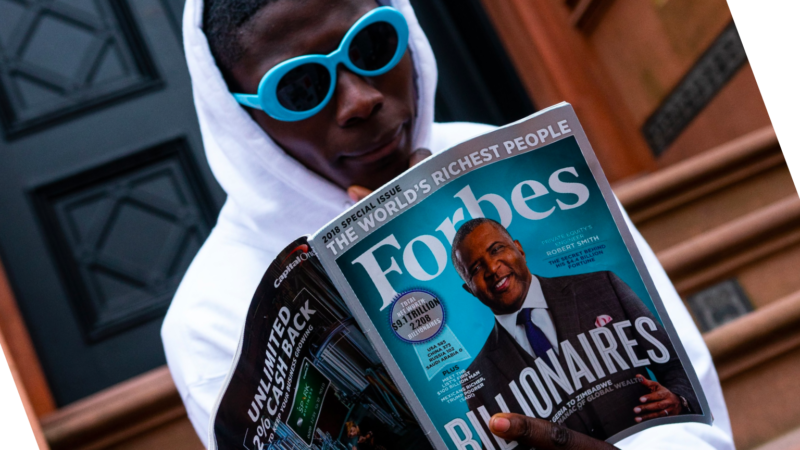
Billionaires not a threat to democracy; tech CEOs seen favorably. The left-leaning media outlet Vox teamed up with progressive think tank Data for Progress to poll people on their views about the super-rich. But in what may have been something of a disappointment, Americans overwhelmingly rejected far-left rhetoric about wealth, tech companies, and the place of billionaires in society.
Eighty-two percent said billionaires should be allowed to exist (while only 13 percent said they shouldn’t), and 68 percent disagreed with the statement that “it‘s immoral for society to allow people to become billionaires.” This stands in contrast to some leftist and even mainstream liberal rhetoric that the government should forcibly “abolish billionaires.”
Asked if it was a good or bad thing “that there are some people in this country who have personal fortunes of a billion dollars or more,” 28 percent of respondents said good, 18 percent said bad, and more than half—54 percent—said it was neither a good nor bad thing.
Survey respondents gave the ultra-rich high marks for giving back:
Asked whether billionaires do a good job at giving away their money through philanthropy. 47 percent say they agree; only 33 percent say they don’t.
And they rejected the idea that billionaires are a threat to democracy, with 54 percent disagreeing with that statement and only 28 percent in agreement.
Unsurprisingly, Democrats were more likely than Republicans to view billionaires in general with suspicion (38 percent of Democrats had “somewhat negative” and 14 percent “strongly negative” feelings, compared to 30 percent and 10 percent for Republicans).
But Republicans were more likely to say that billionaires had too much influence on the 2020 election. Sixty-two percent of Republican respondents agreed with that statement, compared to 55 percent of Democrats.
The poll of 1,234 likely voters was conducted in February 2021. It has a margin of error of plus or minus 3 percentage points.
Not all of the answers about the ultra-rich were positive:
By a wide gap — 72 percent to 19 percent — voters polled say it was unfair that billionaires got wealthier during the pandemic….
Only 23 percent of those polled said they consider billionaires to be good role models for the country, and 65 percent said they don’t.
Mostly, however, results were pretty evenly mixed. For instance, asked if billionaires had done more good than bad for society during the COVID-19 pandemic, 40 percent said yes, 36 percent said no, and a quarter said they didn’t know.
Overall, 36 percent of people surveyed felt positively about billionaires and 49 percent felt negatively. “Black Americans said they had much more positive feelings about billionaires than did members of other racial subgroups: 45 percent said they felt positively, with only 39 percent saying they felt negatively,” notes Vox.
Asked about specific billionaires, people also had mixed feelings.
Bill Gates and Elon Musk elicited significantly more favorable views than not—55 percent favorable versus 35 percent unfavorable for Gates and 50 percent versus 23 percent for Musk—while Amazon founder Jeff Bezos broke about even, with 36 percent viewing him favorably and 38 percent unfavorably.
The only one of the tech CEOs to receive a majority of unfavorable views was Facebook CEO Mark Zuckerberg, with 54 percent seeing him negatively and just 31 percent seeing him positively.
Asked if they agreed that “American tech companies have done more good than bad for me and my family during the pandemic,” 37 percent agreed, 38 percent disagreed, and 26 percent said they didn’t know.
FREE MINDS
Kentucky has adopted a small, but robust school choice program over the governor’s veto. #HB563 pic.twitter.com/awIv3aSVEX
— Caleb O. Brown (@cobrown) March 30, 2021
FREE MARKETS
The vaccine passport debate heats up:
This entire "vaccine passport" discussion is totally polluted by our toxic political culture in which it's invariably demanded that every choice must be–at the highest governmental level possible–either banned or mandated.
— Zach Weissmueller (@TheAbridgedZach) March 30, 2021
Both sides seem intent on pushing authoritarian answers here, with some demanding that vaccine passports become national policy and others—like Florida Gov. Ron DeSantis—proposing that private businesses be banned from making entry contingent on vaccine status.
QUICK HITS
10th Cir. holds that police officers are entitled to immunity even if they actually subjectively believed they were acting illegally, by detaining somebody who filmed them beating somebody else.
(What matters is whether a circuit court had said so.)https://t.co/xpjPrDVFWU pic.twitter.com/UFKSOYO4Fh
— Brad Heath (@bradheath) March 29, 2021
• “New York must immediately begin to offer Covid vaccines to all incarcerated people in the state’s prisons and jails, a judge ruled on Monday, making the state one of few in the nation to provide doses to such a broad population behind bars,” The New York Times reports.
• Glenn Greenwald pushes back on the idea that it’s wrong to criticize a (highly illiberal) USA Today article because it was co-written by an intern.
• Over-regulation is creating a child care crisis in California.
• This is just weird:
I would love to know who on her team told her random outbursts of laughter is a good and effective rhetorical tool. https://t.co/4mejbU9ntb
— tsar becket adams (@BecketAdams) March 30, 2021
• Kat Murti and I discuss how capitalism and economic liberty are good for women:
from Latest – Reason.com https://ift.tt/2QIGADO
via IFTTT